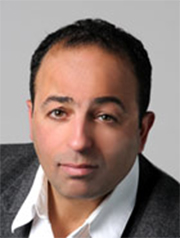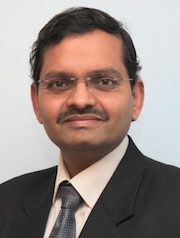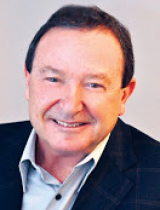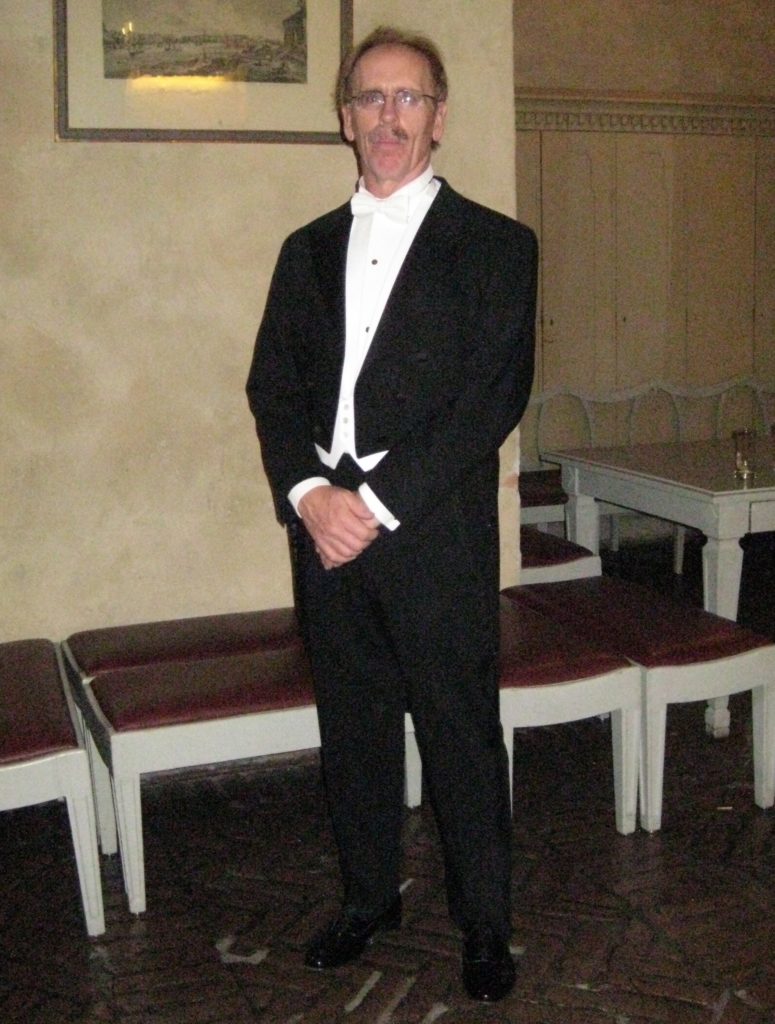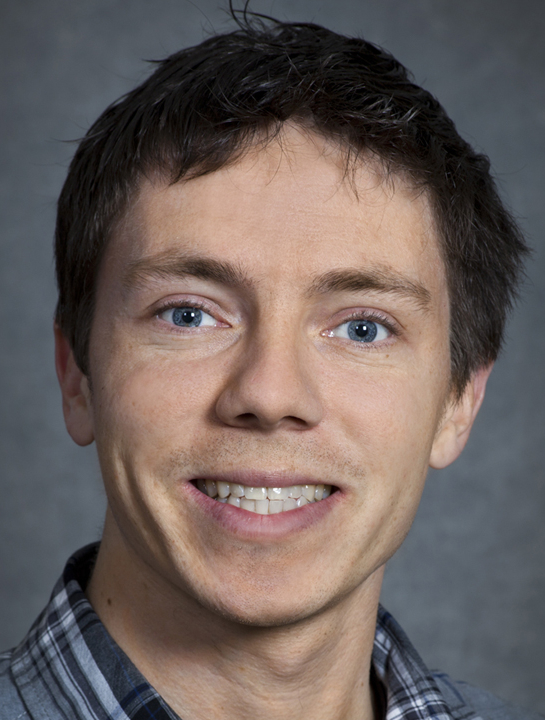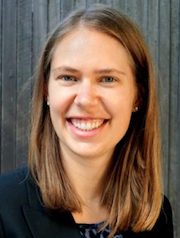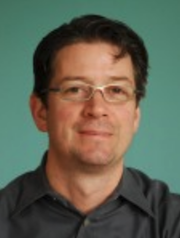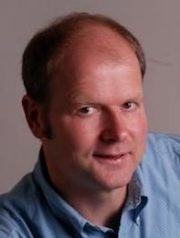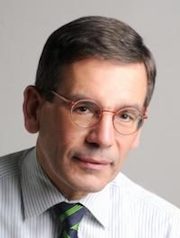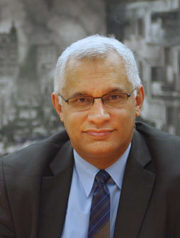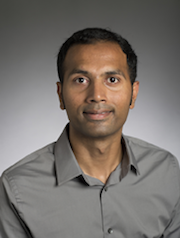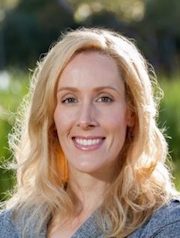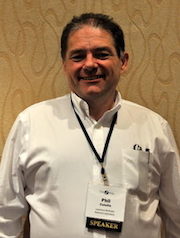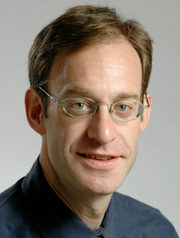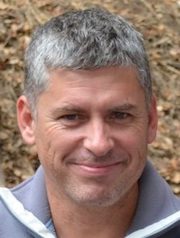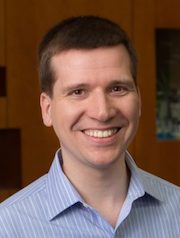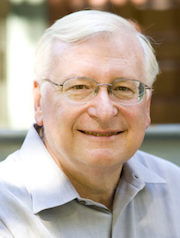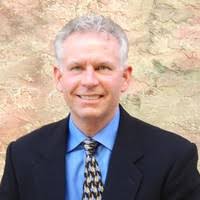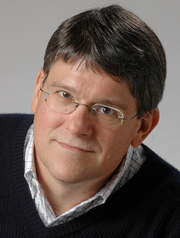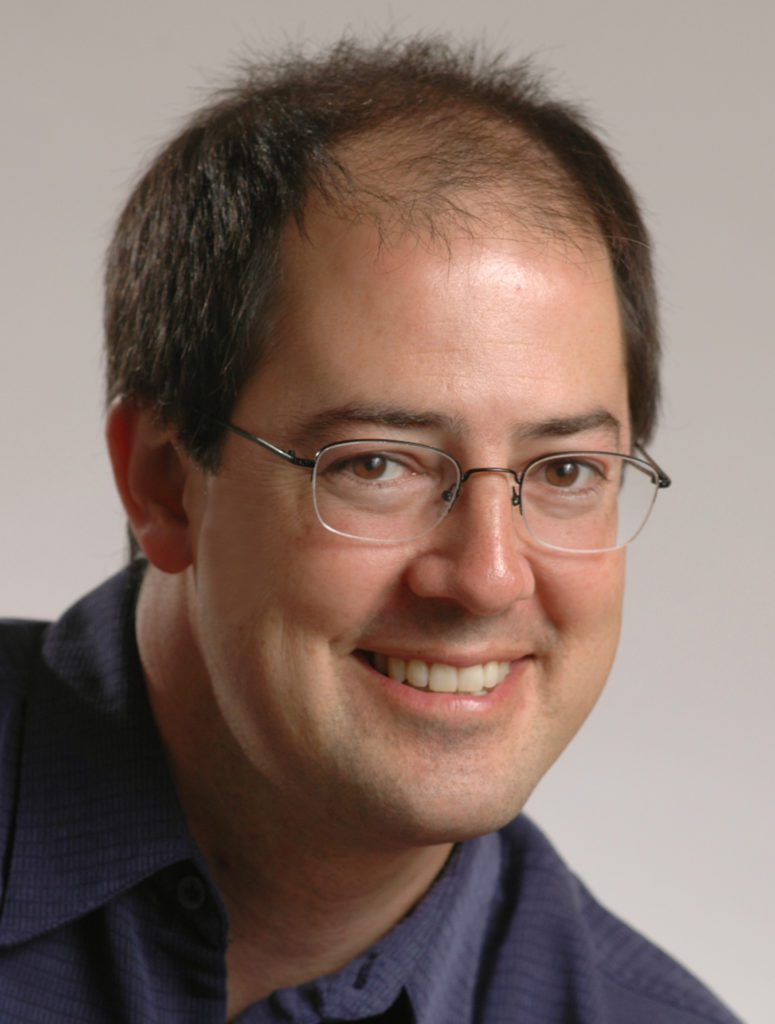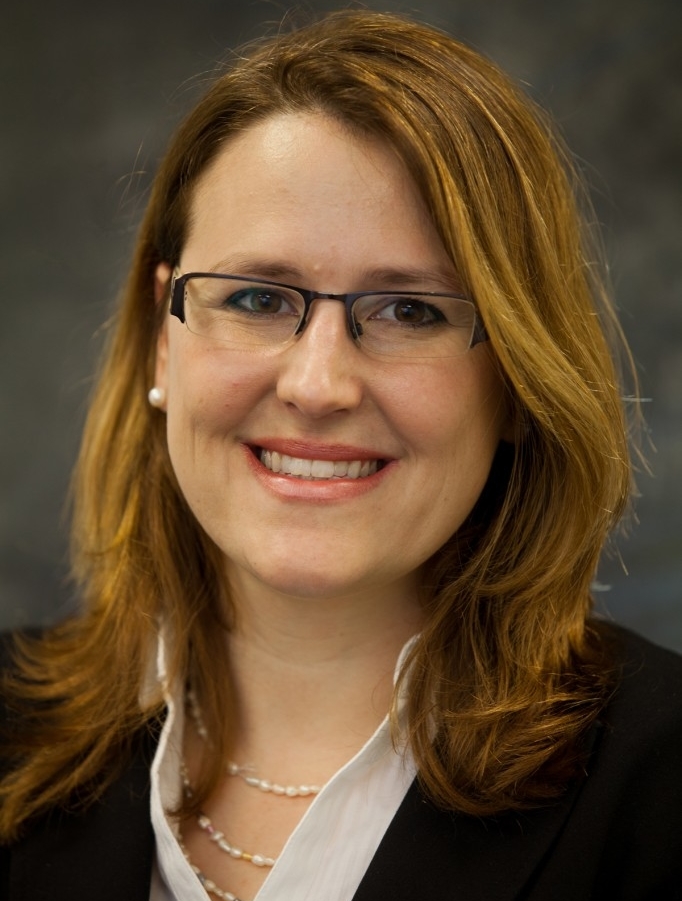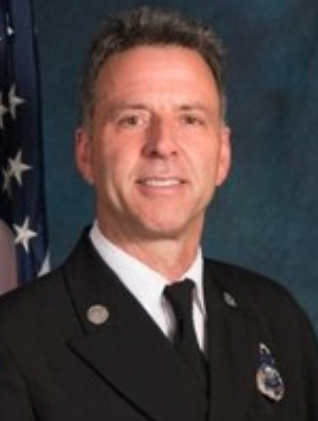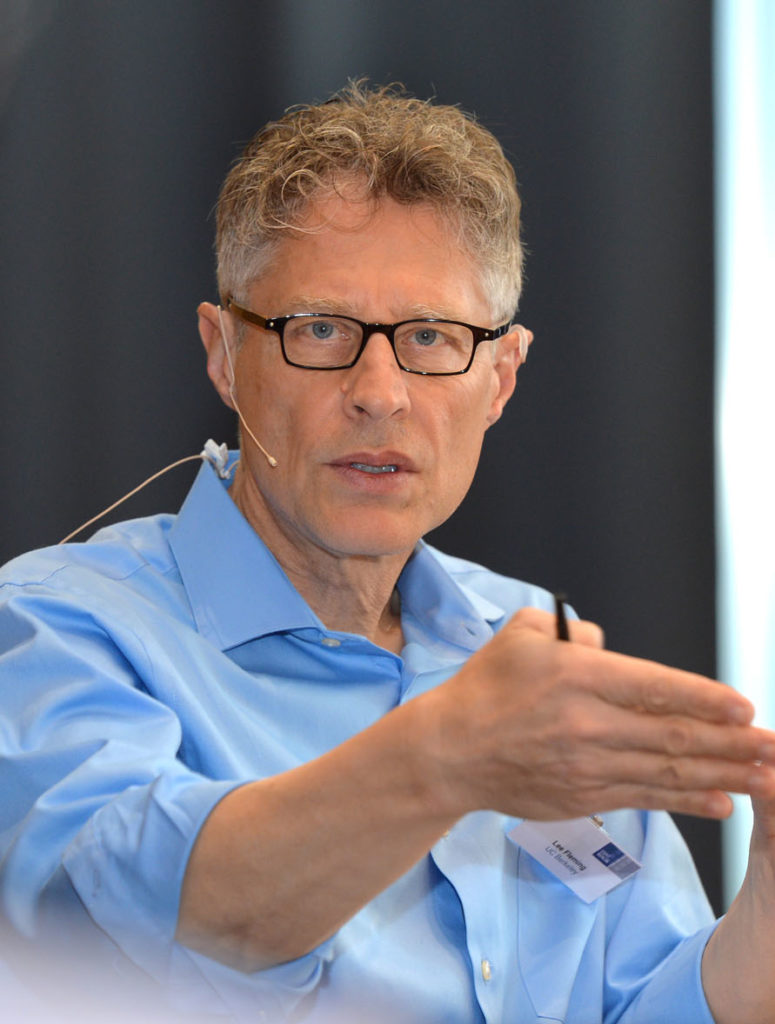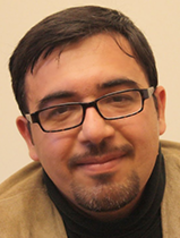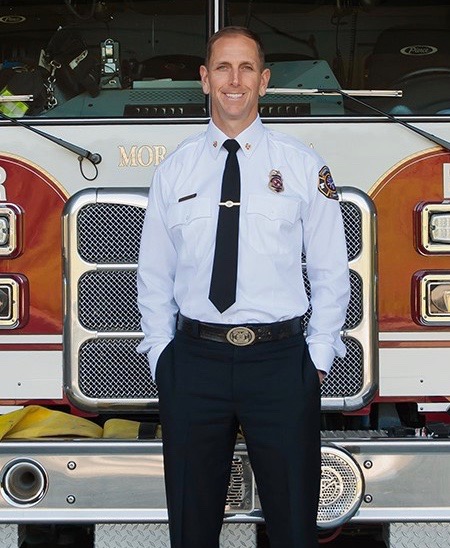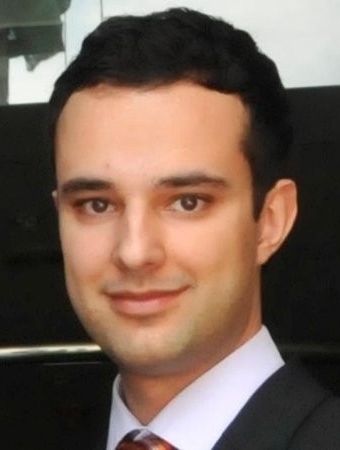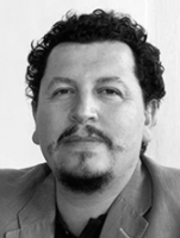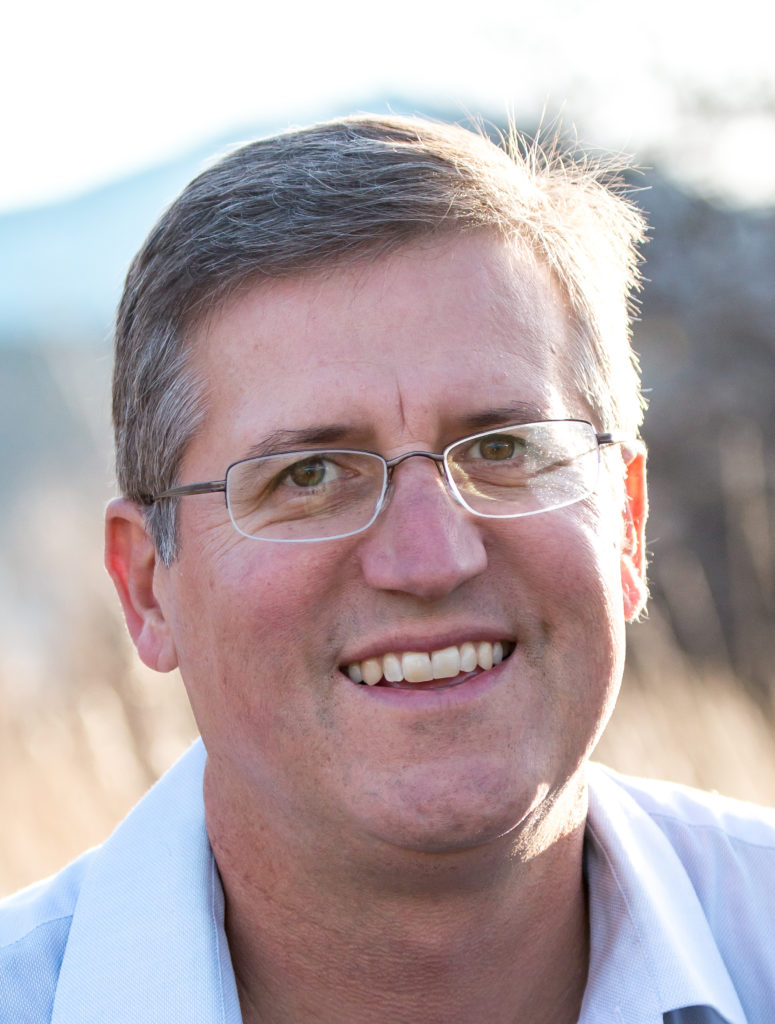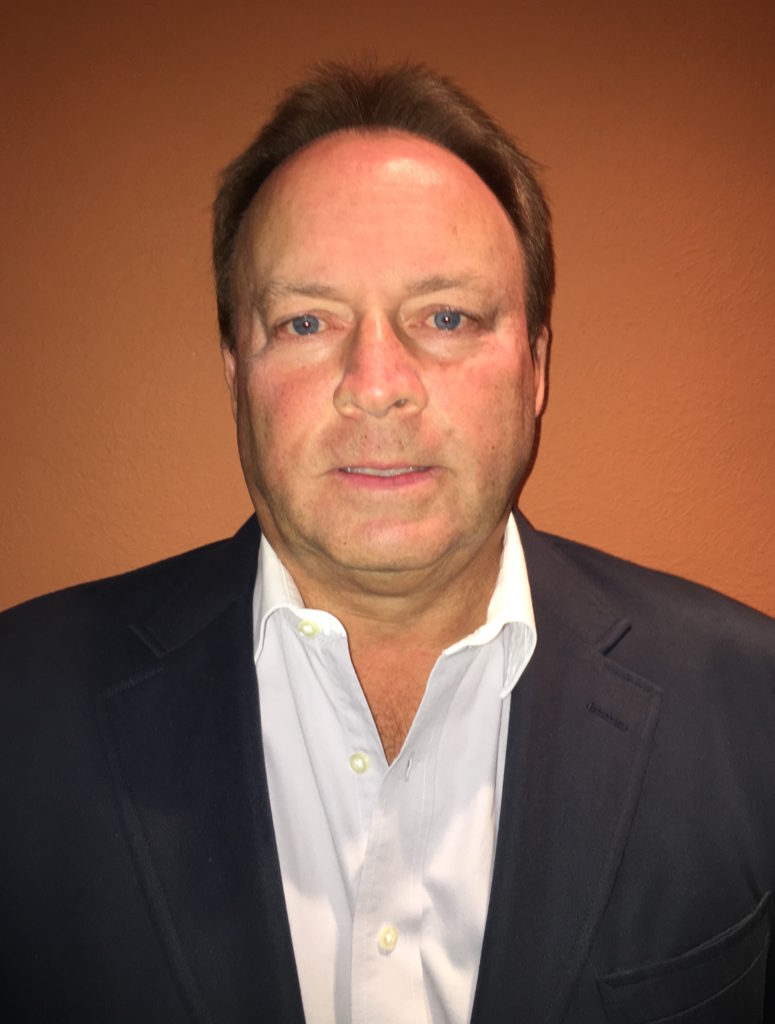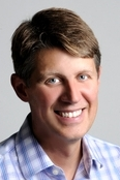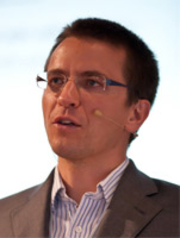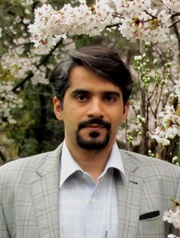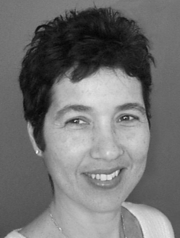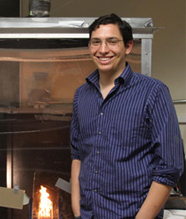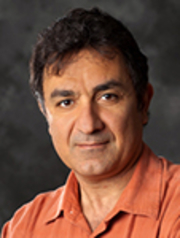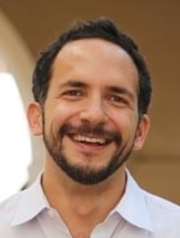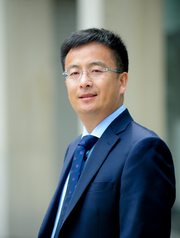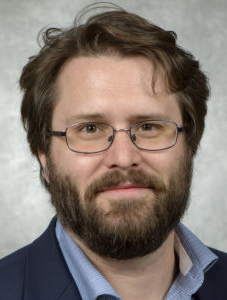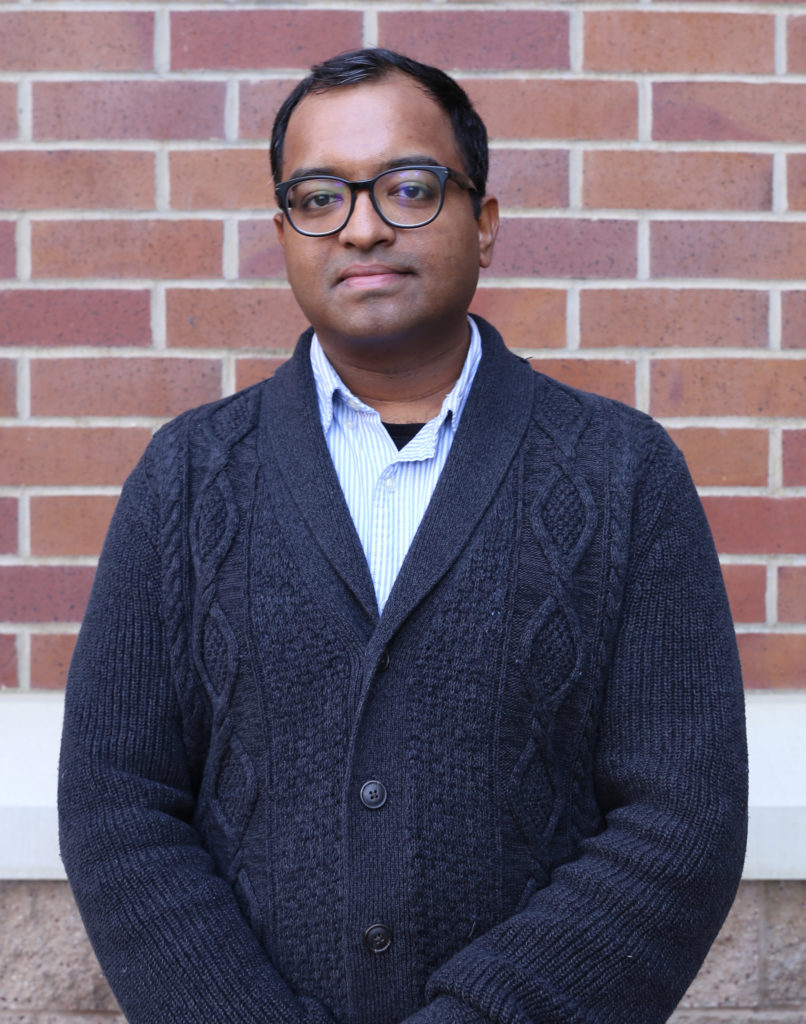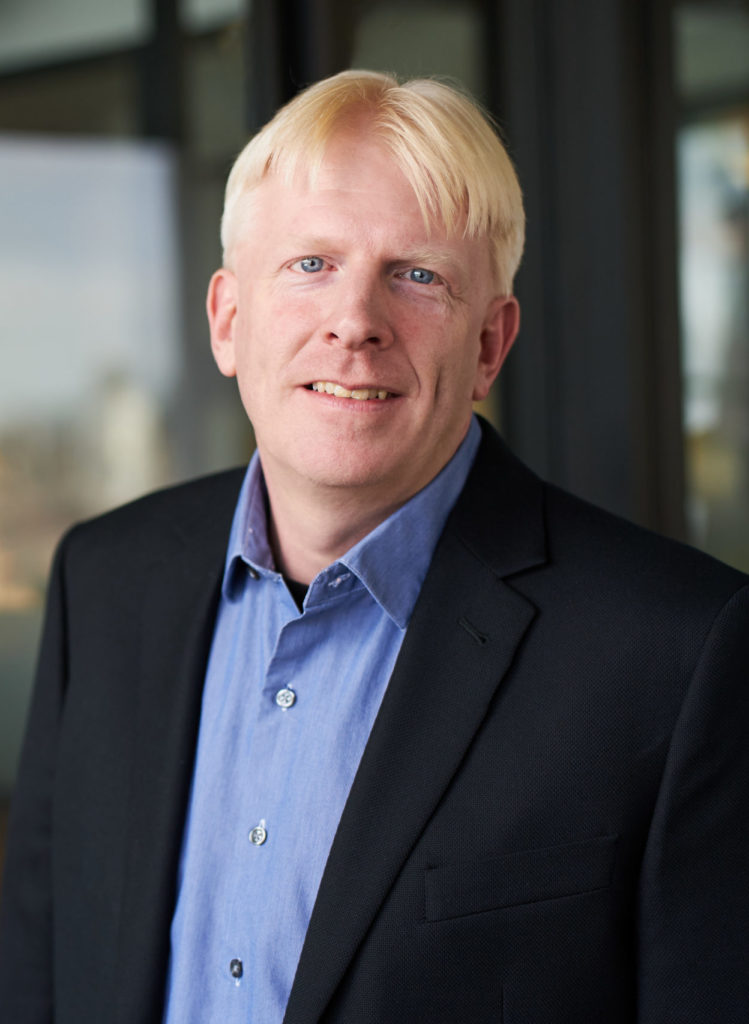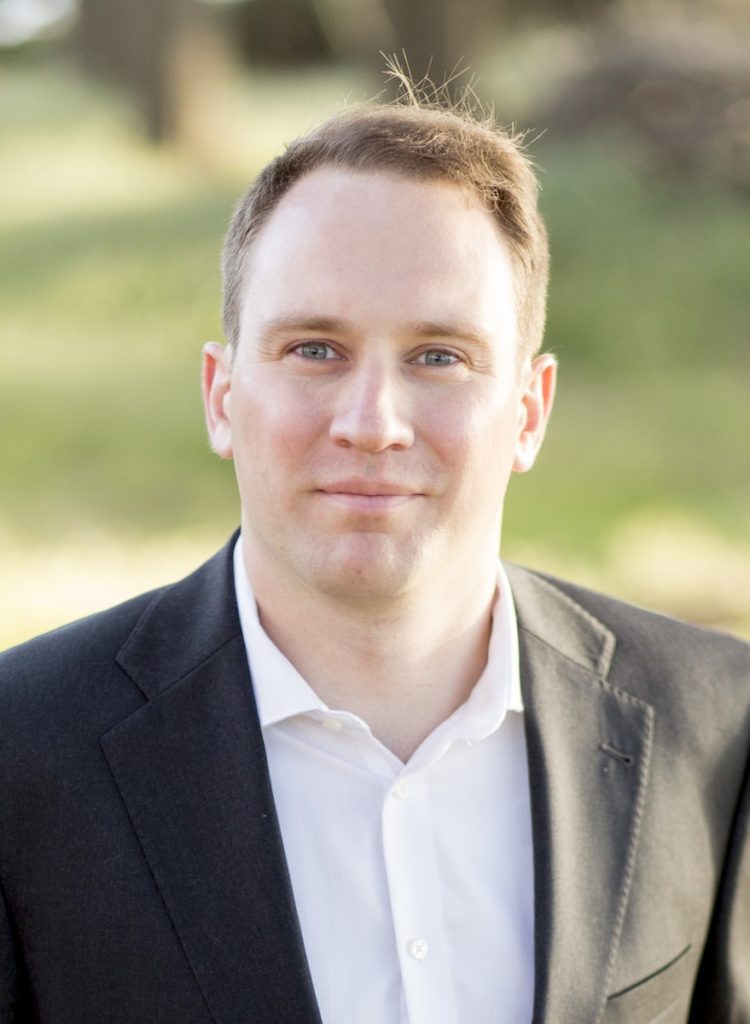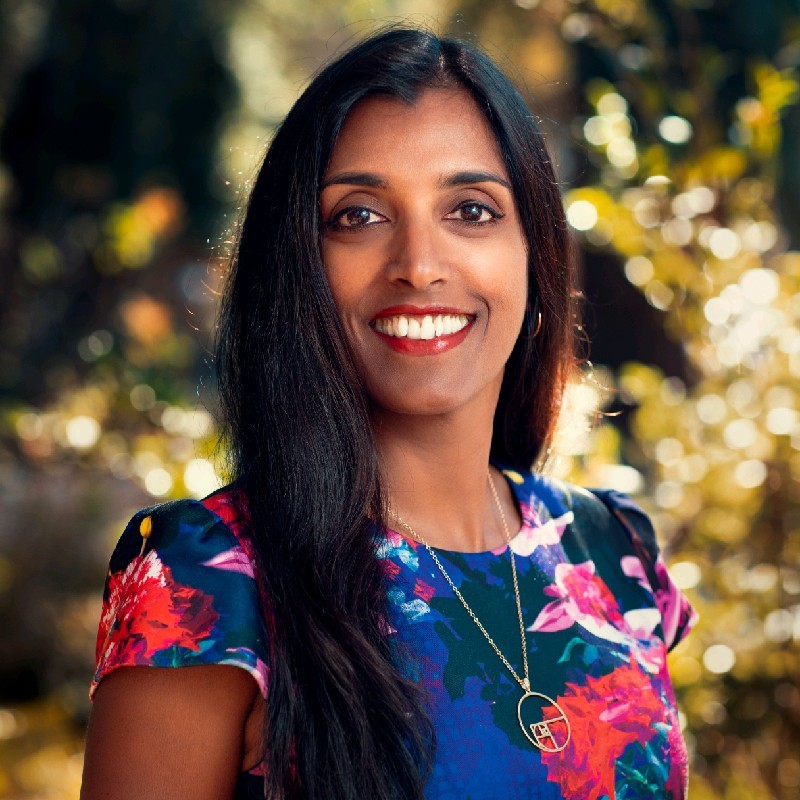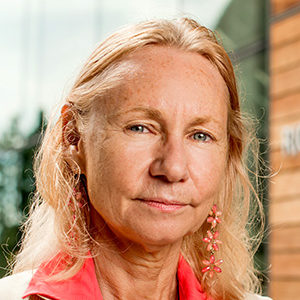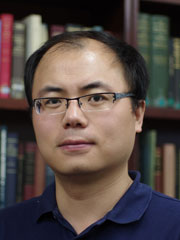Members of the Fire Research Group are affiliated with UC Berkeley, Lawrence Berkeley National Laboratory, and the California Community at Large
Director of the FRG: Tarek Zohdi
Skills:
- Modeling and simulation of:
- Advanced manufacturing processes
- 3D printing processes
- High-strength/light-weight fabric
- Particulate/granular flows
- Multiphase/composite electromagnetic materials
- Dynamics of swarms and UAVs
- Propagation of fires and incandescent particles
- Micro-structural/macro-property inverse problems-optimization and design of new materials
- Discrete Element, Finite Element and Finite Difference methods
To learn more about Professor Zohdi’s research, please visit the Computational Manufacturing and Materials Research Lab website.
Members
Amarnath Kasalanati
Skills:
- Performance-based Structural Design
- Structural Response Control
- Nonlinear Analysis
Carlos Fernandez-Pello
Skills:
Ignition and fire spread; smoldering and transition to flaming; spacecraft/aircraft fire safety; wildland fire propagation and wildland fire spotting; liquid fuel pool burning; self heating and ignition; small-scale energy generation; biofuels combustion
Carlton Pennypacker
Skills:
Dr. Pennypacker has spent much of his career as a research astrophysicist and educator, receiving his Ph.D. from Harvard in 1978. His principal research was the studying of supernovae and the building of techniques for their automated discovery.
Read more
With Rich Muller, he co-founded the Berkeley Supernova Search, which later became the Supernova Cosmology Project. He shared the 2007 Gruber Prize in Cosmology and the 2015 Breakthrough Prize in Fundamental Physics for the Supernova Cosmology Project’s discovery that the expansion of the universe is accelerating. His principal interests and skills are developing systems for automated imaging and data reduction leading to the discovery of significant signals. This involves a combination of inter-discplinary fields, including sensor development and deployment, automated telescopse or other platforms, pipelined and efficient data reducation and analysis, and finally robust detection of small signals among a cluttered background, with sufficient background rejection so the system is usable. After honing his skills on astrophysically interesting objects, he now wants to put such skills to the more immediate well-being of society by helping to reduce the danger from wildland fires faced by a warming world.Daniel Feldman
Skills:
Radiative transfer modeling and software development for atmospheric and land modeling including
- full-physics solutions on novel hardware systems and
- improved parameterizations that incorporate known physics with computational efficiency.
Read more
3. Active and passive remote sensing instrument development from concept to deployment through the use of massively parallelized Observing System Simulation Experiments.
4. Combining satellite and ground-based remote sensing with in situ observations to quantify the impacts of aerosols and greenhouse gases on the local, regional, and global distribution of atmospheric radiant energy.
Hannah Stuart
Skills:
Professor Stuart focuses on design for dexterous remote robotic systems. Smart interactive mechanisms can lead to affordable, adoptable monitoring of environments that are critical to understanding and preventing fires. She is interested in machines for extreme changes in whether conditions and autonomous field sampling.
Hans Johansen
Skills:
- High-accuracy adaptive algorithms on large-scale HPC
- High-resolution climate and weather-related simulations
- Multi-physics engineering problems in complex geometries with experimental validation
Kai Vetter
Skills:
- New concepts and technologies in nuclear radiation detection and imaging for applications ranging from basic research to health, nuclear safeguards and security;
Read more
2. Fusion of nuclear with contextual data to enable fundamentally new ways to detect, map, and visualize radiation in 3D and in real time, independent on deployment platform, e.g. unmanned or manned aerial or ground vehicles;
3. Deployment of radiation detection and imaging assets and data management;
4. Institute for Community Resilience to minimize impact of future events and train the next generation;
More information at http://anp.lbl.gov/ and http://www.irc-berkeley.org/
Karl Van Bibber
Skills:
Teaching and Research:
- Nuclear physics in high energy density plasmas; Axion experiments and dark-matter searches; plasma-based neutron sources and accelerators; antineutrino reactor monitoring.
Read more
2. Areas of Interest: Nuclear Physics; Particle Physics; Particle Astrophysics; Nuclear Instrumentation; Accelerator Science & Technology
3. Current Research Focus: Nuclear Physics Particle Physics Particle Astrophysics Nuclear Instrumentation Accelerator Science & Technology
Khalid Mosalam
Skills:
- Assessment and rehabilitation of essential facilities, e.g. bridges and electrical substations;
- Fracture & damage mechanics of concrete, masonry & wood structures;
Read more
3. Earthquake engineering and fire following earthquakes;
4. Energy-efficiency, sustainability and resiliency of structures;
5. Experimental methods including hybrid simulations;
6. Performance and health monitoring of structures using machine and deep learning.
Koushil Sreenath
Skills:
- Dynamic Legged Robotics
- Cooperative Aerial Transportation
- Nonlinear Control
Mark Mueller
Skills:
Our research is in the design, modeling, and control of aerial robotics, especially for use in challenging environments. This includes the mechanical and controls design of the vehicles, for example with a view to being able to withstand large disturbances, or having multiple vehicles interacting.
Michael Frenklach
Skills:
Chemical kinetics; Combustion chemistry; Pollutant formation (NOx, soot); Computer modeling; Particle dynamics, Model reduction, Surrogate model building, Uncertainty quantification, Data organization
Michelle Newcomer
Skills:
Michelle Newcomer received her PhD in Civil & Environmental Engineering from UC Berkeley.
Read more
Michelle’s research focus is on numerical flow and reactive transport in surface and subsurface systems, with an application to watershed surface water-groundwater interactions and ecosystem response under climate variability and change. Michelle has extensive expertise in R, Python, MIN3P, field work and sampling, and laboratory based analysis.Mike Lampton
Skills:
Astronomical data analysis in Xray, Ultraviolet, Visible and
InfraRed bands; Space flight optical systems and detectors;
Read more
Mission Simulations; Optical Ray Tracing. He is presently supporting the international Dark Energy Spectroscopy Investigation (DESI) team and advising the FUEGO wildfire networking group at Berkeley. His two affiliations are with UC Berkeley’s Space Sciences Lab and LBNL.Phillip Colella
Skills:
- Design of finite volume methods for solving partial differential equations in complex geometries.
- Programming language and library design for high-performance computing.
- Application of computational methods for a broad range of science and engineering fields, including combustion and geophysical fluid dynamics.
Philip M. Kaminsky
Skills:
- The analysis and development of robust and efficient algorithms for design, operation, and risk management in logistics systems and supply chains.
- The modeling, analysis, scheduling, and control of warehouse, production, and container terminal systems.
- Pricing and incentive design in integrated systems
Sebastien Biraud
Skills:
Dr. Biraud leads the Climate Sciences Department in the Climate and Ecosystem Sciences Division (CESD). He is the Principal Investigator of the DOE-supported Atmospheric Radiation Measurement Carbon Project, Airborne Carbon Measurement Experiments (ARM-ACME).
Read more
He is an internationally recognized expert in the field of atmospheric greenhouse gases (GHG) observations to support research on carbon cycle, satellites validation, and source attribution. His work relies heavily on the development of measurement capabilities to estimate carbon exchange between the land and the atmosphere. These measurements and analysis activities include: (1) developing eddy covariance systems; (2) building and testing continuous high-accuracy and high precision GHG observations system; (3) integration of GHG observation systems on aircrafts, towers, and UAS platforms; (4) publishing his work on GHG emissions estimates at local and regional scales.Simo Makiharju
Skills:
- High-Reynolds number single- and multiphase flows
- Experimental fluid mechanics (e.g. for flow field measurement around fire & UAV)
- Use and development of techniques and instrumentation for flow measurement and more (e.g. PIV, LDV, X-ray 2D, CT)
Tim Ball
Skills:
Fire, Remote Sensing, Mapping, and Related Capabilities
- 10 years of on-the-ground fire-fighting experience for Cal Fire, USFS, and local governments including helitak, apparatus engine, captain.
- 20 years airborne fire mapping, tactical and strategic fire behavior analysis effectively communicated to Incident Management Team.
Read more
3. Airborne sensor system design, construction, and use across many science and operational disciplines, across all wavelengths, and across all aircraft types and sizes.
4. Plant eco-physiology, particularly wet relations and photosynthesis.
5. Practical applications of science and business start-ups.
Wayne Lee Delker
Skills:
- Business and Technical Leadership: Creation of technical leadership, expertise and strategies to influence business, govt. and public policy to produce successful results.
- Innovation: Development of new products, processes and business models using a variety of methods from start-up to large global enterprises.
James Poole
Skills:
- Indoor Air Quality, Psychrometry, Controls
- Air handling/refrigeration system design
Roberto Horowitz
Skills:
- Analysis and design of adaptive, learning, nonlinear, self-organizing and optimal control systems.
- Applications to robotics, mechatronics and autonomous vehicles and traffic control systems.
- Analysis and design of intelligent network control traffic systems.
Kristofer Pister
Skills:
- reliable low-power wireless sensor network algorithms and software for indoor, outdoor, and industrial deployments
- autonomous micro aerial vehicles
Barbara S. Linke
Skills:
- Sustainable advanced manufacturing, digital manufacturing
- Quality indicators / Key performance indicators / sustainability indicators
- Surface integrity and characterization
Read more
4. Energy-efficiency in manufacturing
5. Interdisciplinary and hands-on STEM education
Charles Scawthorn
Skills:
Charles Scawthorn is a structural engineer specializing in the analysis and mitigation of natural and technological hazards. He has developed models and software for FEMA and other agencies and the global insurance industry to assess risk due to earthquake, wind, volcanism, fire, flood (e.g., HAZUS Flood module) and chemical, biological, nuclear and radiological hazards, as the foundation for reducting these risks.
Read more
His models for fires ollowing earthquake has been the basis of insurance industry practice for the last 30 years. Much of this decision-oriented and emergency management work on the spread and mitigation of fires following earthquakes has been performed in conjunction with fire and water departments in California, particularly San Francisco. He has served on a Board of Inquiry into a firefighter fatality associated with a structural fire and collapse, for the Oakland Fire Department. Closely related to this work in fire following earthquake has been analysis and development of seismic mitiation programs for a large number of water supply utilities. He retired in 2008 as Professor and head of the Earthquake Disaster Prevention Systems Laboratory, Kyoto University (Japan), has been Visiting Professor at Stanford, Beijing Normal and Waseda (Tokyo) Universities and is now Visiting Researcher, Univ. California at Berkeley. He teaches a course on Disaster Risk Assessment, Mitigation and Financing at the World Bank, has taught a weeklong seminar on California earthquake risk for the London Market Association and is a member of the Multihazard Mitigation Council. As President of SPA Risk LLC, he consults to the global insurance industry, the World Bank, local/state/federal agencies and Global 1000 corporations. Dr. Scawthorn is a graduate of the Cooper Union, holds an M.S.C.E. degree from Lehigh University and received his D.Eng. from Kyoto University.Kirk McKinzie
Skills:
Bio: Captain Kirk McKinzie, Cosumnes Fire Dept., 911-GO concept developer. Capt. McKinzie is a SMART First Responder Technologist, a 30 year fire service veteran and is working with international teams of teams, focused on Next Gen solutions.
Read more
Noted success includes: collaborator to AUDREY the DHS funded artificial intelligence for first responders’ platform, via the National Aeronautics and Space Administration (NASA) Jet Propulsion Lab (JPL), Contributor to the Department of Homeland Security (DHS) Next Generation First Responder Program (NGFR)-Project Responder 5, National Institute of Standards and Technology Virtual Reality Grant recipient, Revolutionary Technology Award 1st Place Local Government, Public Sector Partners – RevTechX, Edge of Government-Finalist, World Government Summit Dubai-Advisor Board- Qwake Tech-computer vision solution. He functions as a SME, advisor, speaker and author to government, enterprise, academia, start-ups and operators focused on SMART city design, emergency response, venture capital, interoperability, fire/explosion investigation, standards and codes. His areas of expertise includes Next Gen first response systems, remote sensing, bio-metrics, artificial intelligence, IOT, computational fluid dynamics, holographic light display, haptic feedback, 3D+ Virtual/Mixed/Augmented Reality and related lifesaving technological solutions. His equity interest is life-the goal is to save one.Lee Fleming
Skills:
Professor Lee Fleming joined the IEOR Department at UC Berkeley in Fall 2011 and is the Faculty Director of the Coleman Fung Institute of Engineering Leadership. He teaches engineering leadership and a capstone lab within the Masters of Engineering curriculum. His research applies machine learning and NLP techniques on large datasets with causal inference models from management and social science.
Read more
His work investigates how mobility influences creative output, innovative search strategy drives firm performance, non-competes change labor mobility and entrepreneurship, and crowdfunding might reduce regional inequality.
Professor Fleming earned his bachelor’s degree in Electrical Engineering at UC Davis. Dr. Fleming went on to earn a Masters in Engineering Management from Stanford University in the Honors Cooperative Program. He then received his Ph.D. in Organizational Behavior in the Department of Industrial Engineering at Stanford. He also completed a Masters in Statistics during his doctoral years. Between 1998 and 2011, he was a professor at the Harvard Business School, most recently as the Albert J. Weatherhead III Professor of Business Administration.
Professor Fleming is an avid cyclist and rides his bike to work whenever possible. On rainy days he prefers to run and slog through the mud. He has been a professional musician (and member of the AFL CIO), blackjack dealer, and cycling teammate of Andy Hampsten.
Mohammad R. K. Mofrad
Skills:
- Computational modeling of large-scale fire dynamics
- Computational modeling of skin in injury and burns
- Scaffolds for stimulation of wound healing in burned skins
Juan Aparicio
Skills:
Juan Aparicio is the Head of Advanced Manufacturing Automation at Siemens Corporate Technology in Berkeley, CA. Together with top university partners, Aparicio is bringing together the worlds of Industrial Automation, Robotics and AI. His work has been featured at the New York Times, MIT Tech Review, Wired, TheRobotReport and other media outlets.
Read more
Aparicio is member of the Technical Advisory Committee for the Advanced Robotics in Manufacturing (ARM) Institute, and member of the A3 Strategic Advisory Committee on AI.Dave Winnacker
Skills:
Dave Winnacker has been in the fire service for 15 years in Fresno City, Alameda County, and Moraga-Orinda Fire District. Since becoming the fire chief in 2017 he has developed a comprehensive strategic wild fire risk reduction plan for Moraga-Orinda using early warning, fire spread modeling, terrain and vehicular access analysis, and prescribed fire in conjunction with traditional fuels mitigation techniques.
Read more
He served on active duty as a Marine Corps Infantry officer from 1997-2003 and has remained in the reserves. As a reserve officer he served as the commanding officer of 4th Force Reconnaissance Company from 2014-2016 and currently serves as the executive officer of 23d Marine Regiment in San Bruno, CA.Williams Collins
Skills:
- Principles of and projections from Earth System Models
- Climatic extremes and their societal and environmental impacts
- Berkeley and Berkeley Lab’s new Environmental resilience accelerator (Era)
Eugen Solowjow
Skills:
Dr. Eugen Solowjow’s research interests cover topics in the area of Machine Autonomy, including robot learning, visual and haptic perception, model-based-and data-driven controls, as well as Edge and Embedded AI. Eugen is a Research Scientist at Siemens Corporation located in Berkeley, CA.
Scott Epstein
Skills:
Dr. Scott Epstein is an expert in outdoor air quality and leads the Air Quality Assessment Group at the South Coast Air Quality Management District (SCAQMD). His team issues air quality forecasts and smoke advisories for greater Los Angeles region. His group specializes in the analysis and interpretation of air quality measurement and meteorological data from surface- and satellite-based instruments.
John R. Balmes, M. D.
Skills:
Dr. Balmes is a physician-scientist who has been studying the health effects of exposures to biomass smoke due to wildfires and other sources for 30 years.
Read more
He is also the Physician Member of the California Air Resources Board.1. Assessment of health effects of poor air quality, including secondary to wildfire emissions
2. Assessment of occupational exposures of wildland firefighters
3. Development of policies to improve air quality and mitigate climate change
Kenichi Soga
Skills:
- Infrastructure sensing – using innovative sensor solutions to understand the performance of infrastructure
- City-scale modeling and simulations of infrastructure systems – using high performance computers to simulate infrastructure systems from street-scale to regional scale
- Geomechanics – landslides, debris flows
Josh Hacker
Skills:
- Numerical weather prediction
- Data assimilation
- Predictability
- Land atmosphere interactions
Read more
Dr. Hacker is an atmospheric scientist with a broad research and science management career, focusing on lower atmosphere prediction and predictability across many time and space scales. He is an expert in weather and climate applications for the Department of Defense (DoD) and the National Oceanic and Atmospheric Administration (NOAA).
Prior to co-founding Jupiter, Dr. Hacker’s experience spanned laboratory and university settings. Extensive work for the National Center for Atmospheric Research (NCAR) included stints as Director, Joint Numerical Testbed Program, Research Applications Laboratory; and Deputy Director, National Security Applications Program, Research Applications Lab,. He also holds the honor of Post-Doctoral Fellow, Advanced Studies Program. His university appointments include Associate Professor, Naval Postgraduate School, Department of Meteorology.
Dr. Hacker holds Ph.D. and M.Sc. degrees in Atmospheric Sciences from the University of British Columbia, and a B.S. in Atmospheric Sciences from the University of California Los Angeles.
Vincent Ambrosia
Skills:
Remote Sensing, Wildland Fire Science, Geospatial Analysis, Mapping, and Related Capabilities
Read more
1. ~35 years experience in wildfire remote sensing from airborne platforms (piloted and remote piloted) and satellite platforms for active fire and post-fire assessment.
2. +5 years experience as a NASA Associate Program Manager in the Applied Science Program, managing a portfolio of Wildland Fire funded investigations by investigators in government, universities, and NGOs.
3. Support national and international wildfire / remote sensing committees / organizations representing NASA Applied Science Program;
4. Senior Research Scientist / Adjunct Faculty Member of California State University – Monterey Bay (CSUMB), as part of the NASA Ames Research Center Cooperative agreement for Research in Earth Science and Technology (ARC-CREST) since 2001.
Mark T. Stacey
Skills:
- Environmental Fluid Mechanics
- Turbulent Flows
- Disruption of infrastructure systems by environmental events.
Florian Michahelles
Florian.michahelles@siemens.com
Skills:
Dr. Florian Michahelles heads the Artificial & Human Intelligence research group for Siemens Corporate Technology in Berkeley, CA.
Read more
His research interests comprise modeling of knowledge and advanced user interaction for building so-called digital companions – assistive systems that supply users with the right information at the right time using the right modality to achieve their goals and tasks. Please see: www.siemens.com/ahiMohammadreza Eslami
Skills:
Dr. Mohammadreza Eslami is a structural engineer specializing in computational mechanics, with multi-disciplinary interests in extreme events including fire following earthquakes and blast-induced fires.
Read more
Using experimental and numerical approaches, his overall background focuses on the design of novel structures that can withstand extreme conditions. With experience in post-disaster investigation of structural failures in the 2011 Tohoku earthquake and tsunami in Japan, he conducted reconnaissance for tsunami-induced fires in port cities of Tohoku. His experiences in structural engineering includes developing models for:1. Behavior of steel connections under fire conditions
2. Residual mechanical properties of high strength steel subjected to heating-cooling cycles
3. Effectiveness of fireproofing on structural steel members subjected to fire
4. Algorithm and computer codes to simulate Vapor Cloud Explosion (VCE) and fire following VCE
He is interested in performance-based fire design and contributed in design of a variety of mid-rise to high-rise building projects. He is a member and secretary of the ASCE Fire Protection Committee.Katia Obrackza
Skills:
Katia Obraczka is Professor of Computer Science and Engineering at UC Santa Cruz. Before joining UCSC, she was a research scientist at USC’s Information Sciences Institute (ISI) and had a joint appointment at USC’s Computer Science Department.
Read more
Prof. Obraczka’s research interests span the areas of computer networks, distributed systems and Internet information systems. Her lab, the Internetwork Research Group (i-NRG) at UCSC, conducts research on designing and developing protocol architectures motivated by the internets of the future.Craig Smith
Skills:
- Wildfire Risk modeling for Insurance Industry
- Methodology and Operational Forecasting for Electric Grid De-Energization events (Public Safety Power Shutoff)
- Downscaled Climatology of explosive wind-driven wildfire events in California
Read more
4. Wind Forecasting and Validation, Wildfire Risk modeling, Fuels Modeling
5. Former Research Professor at Desert Research Institute and former Expert Fire Weather Meteorologist at Pacific Gas and Electric
Michael Gollner
Skills:
Dr. Gollner is broadly interested in fire science problems, utilizing experiments and combustion and fluid dynamics theory to understand fire spread in the wildland and built environments, material flammability, and smoke and toxic product formation and transport.
Read more
The goal of his research is to use improved physical understanding of fire phenomena to protect people, property and the environment. He is member of the Board of Directors for the International Association of Wildland Fire (IAWF), is an elected member of the Management Committee of the International Association of Fire Safety Science and serves as Chair of the Research Advisory Board of the National Fire Protection Association (NFPA) Fire Protection Research Foundation.Roger Georges Ghanem
Skills:
Ghanem’s professional expertise in model-based risk assessment at the confluence of physics-constrained data science and computational science. His recent work has addressed stochastic analysis, design, and optimization challenges in composites manufacturing, hypersonic combustion, dynamics of forest growth, structural dynamics, and safety of nuclear reactors.
Read more
Roger Ghanem is the Gordon Marshall Professor of Engineering Technology at the University of Southern California. He is fellow of the AAAS, SIAM, IACM, USACM and of the Engineering Mechanics Institute of ASCE (EMI). He has served as President of EMI, on the Executive Council of USACM, and as Chair of the SIAM UQ-SIAG.José E. Andrade
Skills:
José E. Andrade is a Professor in the Division of Engineering and Applied Science at the California Institute of Technology. Andrade joined Caltech after four years at Northwestern University as an Assistant Professor of Theoretical and Applied Mechanics.
Read more
Andrade got his PhD in Civil Engineering in 2006 from Stanford University. His research interests lie in the area of computational geomechanics with application to problems at the interface of physics and mechanics to develop predictive analytical and numerical models for porous materials (e.g., soils, rocks, concrete, bone, etc.). Prof. Andrade is the recipient of several honors and awards including the 2006 Zienkiewicz Medal in computational mechanics,the 2010 NSF CAREER Award, the 2011 Young Investigator Award from AFOSR, and the 2011 ASCE’s Casagrande Award. Andrade’s work is currently funded by NSF, US DOE, and AFOSR.Erica Fischer
Skills:
Dr. Fischer performs research on the behavior of infrastructure in building fires and wildfires. She utilizes large-scale testing, field reconnaissance, and finite element modeling to understand how fires affect the built environment, and how structural mechanics and heat transfer principles can be utilized to design and plan more resilient cities.
Read more
The goal of her research is to promote multidisciplinary, global, and sustainable approaches to engineering that will improve the resilience and sustainability of communities in natural and man-made hazards. Dr. Fischer often works collaboratively with social scientists and urban planners to incorporate the long-term impacts of damaged critical infrastructure on communities into her engineering research. She is the Vice Chair of the ASCE/SEI Fire Protection Committee, on the Board of Directors of the Earthquake Engineering Research Institute (EERI), and on the Executive Committee of the Structural Stability Research Council. Dr. Fischer’s work is currently funded by USDA, PEER, AISC, NSF, and the Alfred P. Sloan Foundation.Max Shen
Skills:
Collaborating with an international and interdisciplinary group of researchers, we are developing modeling and decision support tools for landscape and conservation planning, wildfire mitigation strategies, biodiversity conservation planning, and strategic forestry management, using techniques from operations research, data analytics and AI.
Ben Brown
Skills:
Ben Brown is a Computational Biologist Staff Scientist at Lawrence Berkeley National Laboratory. His research interests include Genomics, Ecotoxicology, Statistical Machine Learning, and Molecular Ecosystems Biology.
Tirtha Banerjee
Skills:
Tirtha Banerjee is an Assistant Professor at the Department of Civil and Environmental Engineering, University of California, Irvine. He received his Bachelor of Science degree in Civil Engineering from Jadavpur University, Calcutta, India in 2011.
Read more
During his undergraduate studies, he conducted research in the areas of structural dynamics and Aerospace Engineering in India and Germany as a DAAD (German Academic Exchange Service) Fellow. Upon completion of his undergraduate studies in 2011, he moved to the U.S. and joined Duke University in Durham, NC, as a Ph.D. student and conducted theoretical, numerical and experimental studies involving environmental fluid dynamics and turbulent flows. He received his Ph.D. in 2015 and joined the Karlsruhe Institute of Technology (KIT) in Germany for postdoctoral research in atmospheric boundary layer dynamics. He relocated to the U.S. in early 2017 to join Los Alamos National Laboratory (LANL) in New Mexico and started working on wildfires, ecosystem disturbance as well as wind energy resources. At LANL he received a Chick Keller Postdoctoral Fellowship in 2017 and a Director’s Fellowship in 2018. He currently serves as an associate editor of the journal Earth Systems and Environment (Springer) and as an editorial board member of the journal Agricultural and Forest Meteorology (Elsevier). Research in the Boundary Layers and Turbulence Lab led by Banerjee studies mass, momentum and energy exchange between the land surface and the atmosphere using a range of theoretical, numerical and experimental techniques.Andrew Guenthner
Skills:
Andrew is a materials-technology innovator who spent nearly 20 years at US Navy and US Air Force Research Labs where he pioneered, among other things, fire-resistant biomaterials and high throughput R&D processes. He won a number of awards during his time in military R&D including the US DoD Lab Scientist of the Quarter for contributions to the development of high-performance materials. He is the co-creator of Cambium’s first bio-discovered materials technologies.
Patrick Blonigan
Patrick Blonigan is a senior member of the technical staff at Sandia National Labs in Livermore. His research centers on methods to enable engineering design and analysis with large-scale computational models.
Skills:
- Sensitivity analysis
- Model-order reduction
- Chaos theory
- Computational fluid dynamics for turbulent flows
For more: https://www.sandia.gov/-pblonig/
Sashi Sabaratnam
Skills:
Sashi works at the intersection of research, practice, and policy. As UC Cooperative Extension Wildfire Vegetation Mitigation Program Manager for the County of Sonoma, she is working on the next version of the Wildfire Decision Support Framework Tools, including the Wildfire Fuel Mapper parcel-level GIS tool, in collaboration with Sonoma Water and other partners.
Read more
Sashi serves on the board of the Marin Wildfire Prevention Authority and is enrolled at the Center for Homeland Defense & Security Master’s Program at the Naval Postgraduate School, focusing on wildfire mitigation and the culture change needed to reach a long-term resilient condition.
Articles:
Reason: Why Isn’t California Safer From Wildfire?
City Journal: Stop Arguing – Start Preventing and Preparing
Western City magazine: How Marin County is changing the wildfire prevention paradigm
Alice M. Agogino
Skills:
Professor Alice M. Agogino works on disaster response and early detection of wildfires, hazardous materials and methane leaks. All relate to disaster reduction and resiliency that are very much needed to fight climate change today. A spin-off of her NASA robot research, she has tested her robots at prescribed burn events and real-life scenarios.
Read more
Her robots are rapidly deployed by drones and are uniquely able to be inserted into an austere wildland environment. She have developed a sensor payload specifically intended to detect an early, ‘incipient wildfire’. If properly deployed into a defensible space, the robot is designed to detect and monitor wildfires in their early stages and even survive a grass fire. Her hierarchical approach takes advantage of satellite data to identify drone deployment locations to optimally place the sensor robots.Zhaodan Kong
Skills:
- Autonomous guidance, navigation, and control of uncrewed aerial vehicles (UAVs) in complex environments;
- Data-driven plume modelling; and
- Fire detection and tracking with UAVs and onboard sensing.
Camli Badrya
Jeanette Cobian-Iñiguez
